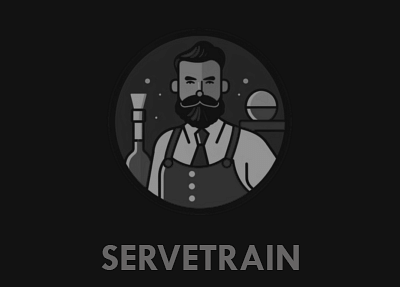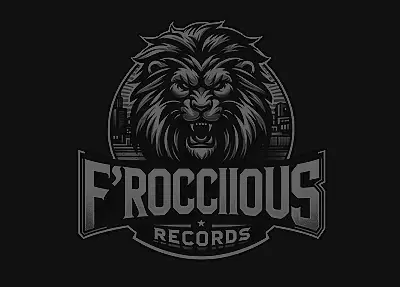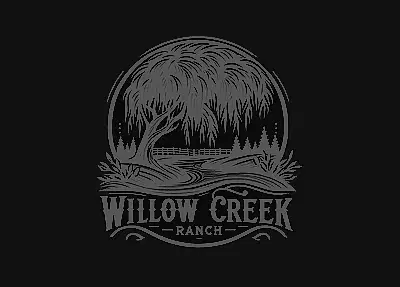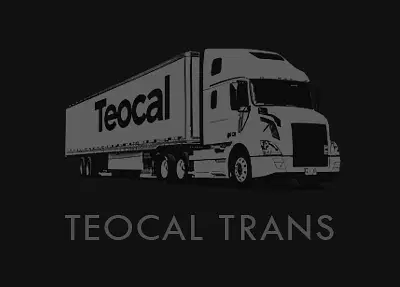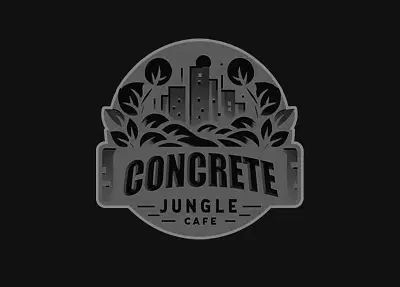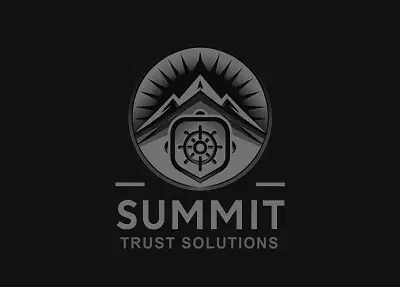Well, folks, it seems the wizards at Google have been burning the midnight oil again. Their latest concoction? A shiny new “recommendations” feature in Search Console. Because apparently, we weren’t spending enough time obsessing over our websites’ performance in search results. Now, before you roll your eyes and mutter “not another SEO tool,” let’s dive into this digital rabbit hole and see if there’s a wonderland waiting for us at the bottom.
The Gist of Google’s Latest Brainchild
Picture this: You’re sipping your morning coffee, bleary-eyed, and you open up your Search Console. Suddenly, BAM! There it is, right on the overview page – a list of optimization opportunities tailored just for you. It’s like having a personal SEO coach, minus the motivational speeches and questionable dietary advice.
Google claims these recommendations are based on data from their indexing, crawling, and serving systems. In other words, they’ve been watching your website. Creepy? Maybe. Useful? Potentially. It’s like having a stalker who actually wants to help you succeed. Who knew Big Brother could be so… supportive?
What’s on the Menu?
So, what kind of wisdom can we expect from this digital oracle? Well, it might suggest you:
- Implement structured data (because apparently, Google likes its information served on a silver platter)
- Add sitemaps (for those times when Google’s crawlers get lost in the labyrinth of your website)
- Identify trending queries and pages (so you can jump on the bandwagon before it leaves the station)
But wait, there’s more! (Isn’t there always?) Let’s dive deeper into these recommendations and see what other nuggets of wisdom Google might bestow upon us mere mortals.
Structured Data: The Digital Equivalent of Color-Coding Your Closet
Imagine if you could tell Google, “Hey, this part of my website is about products, this part is about reviews, and this over here? Oh, that’s just where I keep my collection of cat memes.” That’s essentially what structured data does. It’s like giving Google a map of your website, complete with labels and categories.
But why does Google care so much about this? Well, it turns out that search engines, for all their algorithmic brilliance, can be a bit… dense when it comes to understanding context. Structured data helps them figure out what your content actually means, not just what it says.
So, if Google suggests implementing structured data, it’s not just being bossy. It’s essentially saying, “Help me help you.” And who are we to argue with that logic?
Sitemaps: Because Even Google Gets Lost Sometimes
You’d think that a company capable of mapping the entire world would have no trouble navigating your website. But apparently, even Google’s crawlers need a little help sometimes. That’s where sitemaps come in.
A sitemap is exactly what it sounds like – a map of your site. It lists all your pages and tells Google how they’re related to each other. It’s like leaving breadcrumbs for the Googlebot to follow, ensuring it doesn’t miss any of your brilliant content hidden in the depths of your site structure.
If Google recommends adding or updating your sitemap, take it seriously. It’s essentially admitting, “We might be missing some of your awesome content, and we don’t want that any more than you do.” And let’s face it, in the vast ocean of the internet, we could all use a life raft now and then.
Trending Queries and Pages: Riding the Wave of Popularity
Ever wish you had a crystal ball to tell you what the next big thing in your industry will be? Well, Google’s recommendation feature might be the next best thing. By identifying trending queries and pages, it’s giving you a peek into what’s capturing people’s attention right now.
This feature is like having a really well-informed friend who’s always up on the latest gossip, except instead of telling you who’s dating who in Hollywood, they’re telling you what topics are hot in your niche. It’s your chance to create content that rides the wave of popularity, potentially boosting your traffic and engagement.
But remember, trends are fickle beasts. Today’s hot topic is tomorrow’s old news. Use this information wisely, and always make sure your content adds value, not just noise.
The Slow and Steady Rollout
Now, don’t get too excited. Google is rolling this feature out slower than molasses in January. They’re calling it an “experimental feature,” which is tech-speak for “we’re not entirely sure if this will work, but we’re giving it a shot anyway.”
Not all sites will have access to these pearls of wisdom initially. Google plans to unleash this feature gradually over the coming months, presumably to avoid breaking the internet (again). It’s like they’re dipping their toes in the water before diving in headfirst. Wise move, Google. We’ve all seen what happens when a tech giant cannonballs into the pool without checking the temperature first.
Even when it’s fully deployed, recommendations will only appear when Google deems them relevant for your site. So, if you’re not seeing any suggestions, either your site is perfect (unlikely), or Google’s algorithms are taking a coffee break. Or perhaps they’re just not that into you. Don’t take it personally; algorithms are notoriously fickle.
Why Should You Care?
- Simplified Optimization: Because who doesn’t want a shortcut to SEO success?
Let’s face it, SEO can be more complex than a Rubik’s Cube in the dark. With this new feature, Google is essentially saying, “Here, let us shine a light on that for you.” It’s like having a cheat code for a video game, except the game is your website’s search performance, and the prize is more traffic. Who wouldn’t want that?
- Time-Saving: Now you can spend less time on SEO and more time on… well, whatever it is you do when you’re not obsessing over search rankings.
Remember life before SEO? No? Me neither. But apparently, people used to do things like go outside, have hobbies, or interact with other humans face-to-face. With these recommendations, you might just free up enough time to rediscover some of those ancient practices. Or, let’s be real, you’ll probably just use that time to tweak your meta descriptions for the hundredth time. No judgment here.
- Insight into Google’s Preferences: It’s like getting a peek at the teacher’s answer key.
Google has always been a bit of a mystery, like that cool kid in high school who never really told you what they were thinking. But with these recommendations, it’s like Google is passing you notes in class. “Psst… hey you. Yeah, you. Want to know what I really like in a website?” Don’t mind if we do, Google. Don’t mind if we do.
- Trend Identification: Stay ahead of the curve, or at least try not to fall too far behind it.
In the fast-paced world of the internet, being late to the party is almost as bad as not showing up at all. These recommendations could help you spot trends before they become yesterday’s news. It’s like having a time machine, but instead of going to the future, you’re just really good at predicting it.
- Learning Opportunity: For SEO newbies, it’s like having training wheels on your digital bicycle.
Remember learning to ride a bike? Scrapes, bruises, and the occasional tear? Well, learning SEO can feel a lot like that, minus the physical injuries (unless you count carpal tunnel). These recommendations could serve as your training wheels, helping you find your balance in the wobbly world of search engine optimization.
The Hidden Gems: What Else Might Google Recommend?
While we’ve covered the main areas Google has mentioned, let’s speculate on what other pearls of wisdom they might offer. After all, when it comes to SEO, there’s always more to learn.
- Mobile Optimization: In this smartphone-obsessed world, Google might suggest ways to make your site more mobile-friendly. Because if your website looks like a jumbled mess on a phone screen, you’re basically telling half your potential visitors to take a hike.
- Page Speed Improvements: Google has a need for speed, and they might just tell you how to satisfy it. Suggestions could include optimizing images, leveraging browser caching, or minimizing redirect chains. Because in the digital world, every millisecond counts.
- Content Gaps: Google might identify topics related to your niche that you haven’t covered yet. It’s like having a really smart friend say, “Hey, you know what you should write about next?”
- Backlink Opportunities: While Google has always been cagey about backlinks, they might start suggesting potential linking opportunities. Imagine Google playing matchmaker between your site and others in your industry. It’s like a dating app, but for websites.
- User Experience Suggestions: Google cares about how people interact with your site. They might offer tips on improving navigation, enhancing readability, or optimizing your call-to-action buttons. Because a happy user is a returning user.
The Potential Pitfalls: What Could Go Wrong?
Now, before we get too starry-eyed about this new feature, let’s take a moment to consider the potential downsides. After all, even the shiniest coin has two sides.
- Over-Optimization: In our eagerness to please Google, we might go overboard implementing every single recommendation. This could lead to a website that’s optimized for search engines but reads like it was written by a robot. For humans.
- Loss of Creativity: If everyone follows the same recommendations, won’t all websites start to look and feel the same? There’s a fine line between optimization and homogenization.
- Neglecting User Intent: While Google’s recommendations are data-driven, they might not always align with what your specific audience needs or wants. It’s crucial to balance SEO with user experience.
- Dependency: Relying too heavily on these recommendations could lead to a “Google knows best” mentality, potentially stifling innovation and out-of-the-box thinking.
- False Sense of Security: Just because Google isn’t recommending changes doesn’t necessarily mean your SEO is perfect. There’s always room for improvement, even if it’s not explicitly pointed out.
A Word to the Wise
Before you start implementing every suggestion thrown in front of you, remember this: these recommendations are just that – recommendations. They’re not commandments carved in stone tablets by the Google gods.
Always evaluate these suggestions in the context of your overall website strategy and goals. After all, you know your business better than any algorithm (at least for now). Think of Google’s recommendations as a second opinion, not the final word.
It’s also worth remembering that SEO is just one piece of the digital marketing puzzle. While it’s important, it shouldn’t come at the expense of creating valuable content, building meaningful relationships with your audience, or staying true to your brand identity.
The Future of SEO: Crystal Ball Not Included
As we look to the future, one can’t help but wonder: what does this new feature mean for the SEO industry as a whole? Are we moving towards a world where SEO becomes more accessible to the average website owner? Or will it simply raise the bar, pushing SEO professionals to develop even more advanced strategies?
Only time will tell, but one thing’s for sure: the SEO landscape is changing, and we need to change with it. This new feature isn’t the end of SEO as we know it, but it might just be the beginning of a new era.
In this brave new world, the most successful SEO strategies will likely be those that strike a balance between following Google’s recommendations and maintaining a unique, value-driven approach. It’s not about blindly following Google’s lead, but rather using their insights as a springboard for your own innovative ideas.
In Conclusion
Google’s new recommendations feature in Search Console could be a game-changer for SEO optimization. Or it could be just another digital distraction in our already overstimulated lives. Only time will tell.
But hey, at least it gives us something new to talk about at those thrilling web developer cocktail parties. Because nothing says “life of the party” like discussing the finer points of structured data implementation, am I right?
Remember, in the ever-changing landscape of SEO, adaptability is key. Embrace the changes, but don’t lose sight of what makes your website unique. Use these recommendations as a tool in your arsenal, not as a crutch.
So go forth, implement wisely, and may your search rankings be ever in your favor. And if all else fails, there’s always paid advertising. But that’s a story for another day.





